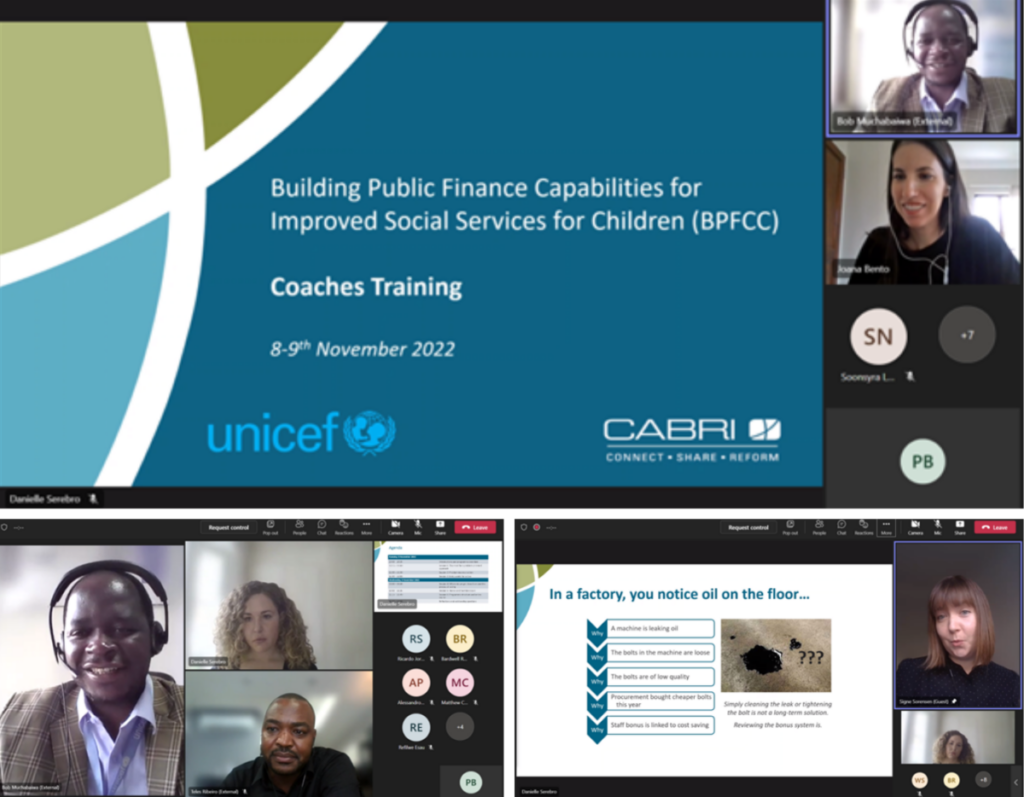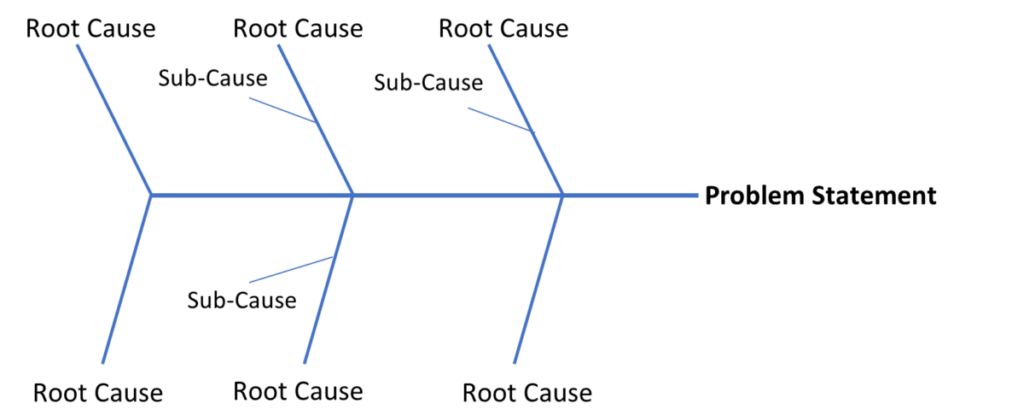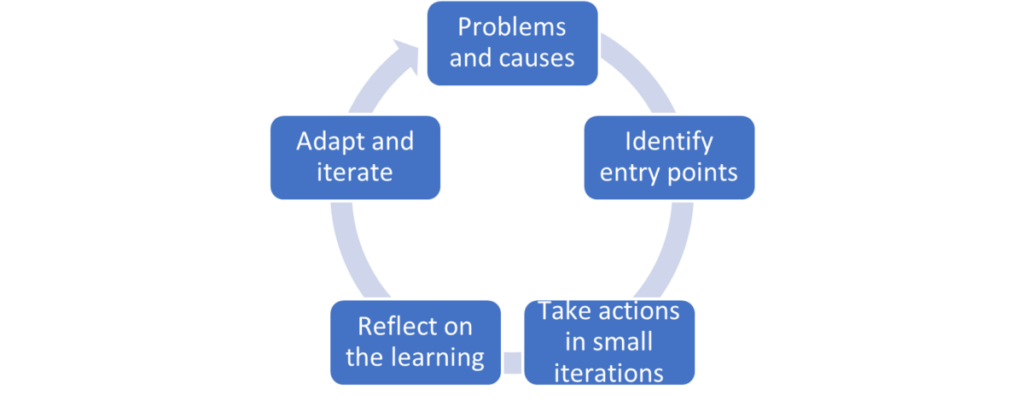
Governance and administrative reforms are often characterised by replicating best practices deemed universally applicable. It is increasingly recognised that reforms are most effective when a problem is identified by local agents and when solutions emerge from a process that considers the administrative, political, and economic contexts of countries. This is the basis of the Problem-driven Iterative Adaption (PDIA) approach, a problem-centric approach that favours experimentation and adaption to allow for the emergence of local solutions.
From 8-9 November 2022, CABRI hosted a training workshop as part of the CABRI-UNICEF Building Public Finance Capabilities for Improved Social Services for Children (BPFCC) programme, for UNICEF coaches. The aim of the workshop was to (i) the theory and key concepts of the PDIA approach; (ii) the role of the PDIA coach; and (iii) the programme structure.
Participating country-teams from Malawi, Zimbabwe, Mozambique, Zambia and Somalia had the opportunity to learn more about:
- Reform failures and the need for a problem-oriented approach
- Deconstructing problems

- Entry points for action and the process of acting
- Where do we get ideas from and the process of acting

- Teams and the PDIA Coach
The coaches training was led by Danielle Serebro, Programme Manager at CABRI and Signe Jung Sorensen, one of the Building Public Finance Capabilities (BPFC) programme associates for CABRI. They were assisted by Joana Bento, Programme Manager and head of the BPFC programme at CABRI.
The 12-month BPFCC programme, CABRI’s second partnership with UNICEF after the ongoing programme on programme-based budgeting with UNICEF Algeria, will focus on tackling public finance problems in key social sectors that particularly affect children, such as education, nutrition, health, and social protection.